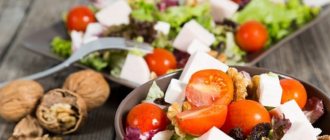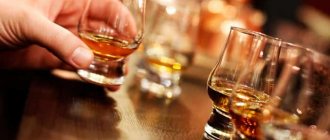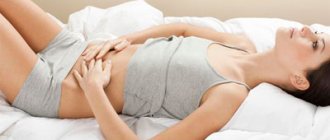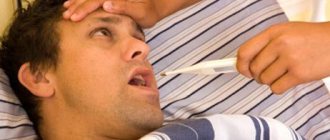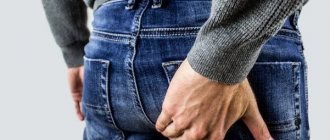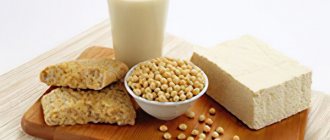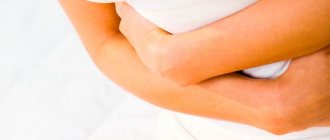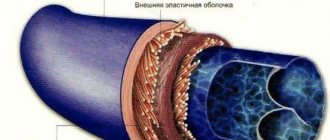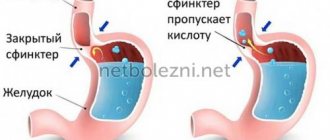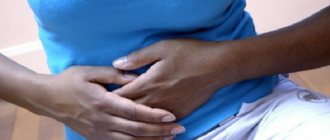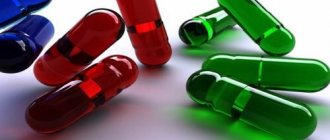Principles of proper nutrition for diarrhea
If you have diarrhea, you should absolutely not eat fatty foods.
In order to improve the condition qualitatively and as quickly as possible during the period of diarrhea, it is considered necessary to follow a properly selected diet.
In order not to aggravate the problem and to promote a speedy recovery, it is necessary to follow a special diet and diet for diarrhea.
Products that can be consumed during this period should perform an enveloping function in order to create a kind of protective film in the stomach and thereby protect the intestinal walls from irritating factors. You should not eat aggressive foods. It is strictly forbidden to eat:
- too fatty food
- over-salted food
- products that cause fermentation processes
- carbohydrate foods.
To quickly restore the disturbed microflora and to help the digestive organs work normally, it is recommended to follow the rule of drinking plenty of fluids. Health care providers prescribe drinks that help replenish electrolytes. What drinks can you drink if you have diarrhea?
- still mineral water (alkaline);
- natural apple juice;
- decoctions of dried fruits (raisins, dried apricots);
- warm infusion of rosehip or bird cherry;
- teas (strong black with lemon, tea made from raspberry and currant leaves);
- blueberry jelly;
- medical solutions to replenish salts in the body (such as Gastrolit, Regidron).
Read: What you can do for diarrhea during pregnancy: medications, diets and possible causes of illness
As for food, if you have diarrhea, it is highly advisable to eat liquid or semi-liquid food that has “astringent” properties and is rich in beneficial microelements. Experts recommend following diet No. 4, which includes the following foods:
- Rice porridge has a liquid or semi-liquid consistency. Most people know that rice has a so-called “binding effect.” This ability is explained by the fact that rice does not contain fiber, which has a laxative effect.
- Rice decoction. You should drink half a glass of this decoction before your main meal. It is advisable to drink it every two hours, so recovery will be much faster.
- Slimy porridges (buckwheat, oatmeal, semolina).
- Bananas. This beloved fruit is not only delicious, but it is also very rich in potassium, which in turn can perfectly replenish the supply of missing electrolytes lost due to indigestion.
- Boiled carrots or carrot puree. The recommendation to eat carrots is due to the high content of vitamin A in the vegetable, which perfectly restores the mucous membrane of the intestinal walls.
- Dry white bread (bought yesterday or in the form of crackers).
- Boiled and baked apples. It is better to eat it as a puree. The content of a large amount of amino acids in such a dish (such as pectin, tannin) promotes excellent removal of toxins and restoration of intestinal tract microorganisms.
- Lean fish and meat. It is better to cook by steaming; you cannot eat skin and tendons, only clean meat.
- Soups with meat or fish broth (not very fatty).
- Soups with added mucous grains.
- Low-fat, fine-grained cottage cheese and boiled eggs. These foods are rich in essential proteins.
An approximate menu for diarrhea for one day (this menu is only suitable for an adult; there is a different approach to the child’s menu):
- Breakfast 1: oatmeal, black tea with lemon.
- Breakfast 2: blueberry jelly.
- Lunch: soup with rice and boiled fish, buckwheat with water, steamed chicken cutlets, apple juice.
- Afternoon snack: raspberry leaf tea.
- Dinner 1: boiled eggs, raisin broth.
- Dinner 2: pear jelly.
Read: Remedy for diarrhea in children: how to treat diarrhea
Prohibited Products
Those products that are approved for consumption during diarrhea can become a complete diet. However, there is a certain list of food products that are prohibited for consumption.
It may cause worsening diarrhea. To know what not to eat if you have diarrhea, you need to find out the recommendations of a nutritionist.
What to remove from your diet if you are sick:
- Fatty meats. You should not eat fried meat. Canned products, smoked foods, and broths are prohibited during the period of diarrhea.
- Fruits and berries. Those fruits and berries that can be classified as sour varieties should be removed from the diet. The acid contained in them has an aggressive effect on the gastrointestinal mucosa.
- Fish. It is forbidden to eat fatty fish, seafood, or canned fish.
- Vegetables. Beets, turnips, radishes, sauerkraut, canned vegetables (vinegar and seasonings are often added to them) are prohibited.
- During the period of diarrhea, it is possible to introduce baby food made from vegetables into the menu.
- Bread and flour. The consumption of rye bread, rolls, cakes and any other baked goods is excluded for the period of disturbances in the digestive processes.
- Milk products. Avoid eating cream, highly carbonated whey drinks and cow's milk.
- Beverages. You cannot drink kvass, coffee and strong tea.
All these products enhance motility in the stomach, irritate the gastrointestinal mucosa and increase the load on the digestive system.
In general, nutrition during diarrhea should be balanced. Of course, in the first day after the onset of diarrhea, it is better to exclude food, and after that you should not force yourself to fast for a long time.
It will be much more effective to consume all permissible products in small quantities - since the intestinal microflora is more likely to be restored, and it becomes much easier for the patient.
When diseases of the gastrointestinal tract were previously identified, then in case of diarrhea you should find out recommendations from the treating specialist - it is likely that dietary nutrition will be prescribed with certain changes.
Cereal porridge, berries, warm green tea or jelly helps to consolidate stool, reduces unpleasant symptoms of diarrhea for more than 2 days
Despite the frustration, there is no need to refuse food at all. Doctors say that nutrition for diarrhea should be good and provide the body with the necessary microelements. Below is a table of what you can eat if you have diarrhea.
There is a list of foods that are strictly prohibited for adults with diarrhea. The ban is due to the fact that they can cause a deterioration in the patient’s condition if the diet for diarrhea is not followed. What not to eat if you have diarrhea:
- Spicy, fatty, fried foods;
- Carbonated drinks;
- Butter pastries, rye bread;
- Canned food, smoked meats, sauces;
- Whole milk;
- Legumes.
What foods are restricted?
There is no strict ban on these products, but, depending on your health condition, they can also negatively affect the gastrointestinal tract and delay the treatment of diarrhea. What not to eat if you have diarrhea if the condition does not improve in a few days:
- Semi-finished products;
- Caffeinated drinks;
- Raw fruits and vegetables;
- Sweets, pure sugar;
- Fresh bread;
- Fatty broth;
- Pasta.
In general, it is worth limiting the consumption of rough food and dry food; what you can eat if you have an upset stomach are warm dishes with a soft consistency.
The basis of the diet for diarrhea is pureed porridge from semolina, rice (white), buckwheat and oatmeal, which are prepared in water or broth (low-fat). Butter is added in the amount of 5 g per serving, up to 50 g per day. It is allowed to eat wheat bread, but dried bread or crackers. You can consume 200 g of not very fried crackers and some inconvenient dry biscuits per day.
Soups are also prepared in low-fat fish or meat broth, adding permitted cereals, a minimum of vegetables, pureed meat, egg flakes, quenelles, and meatballs.
To properly plan your diet for diarrhea, you should know the list of prohibited foods or those that can provoke new attacks of diarrhea.
So what can you eat if you have diarrhea? After all, nutrition should be balanced and completely satisfy the feeling of hunger (a hunger strike with diarrhea is not a solution, but only a complication of the situation!).
Feeding a child with diarrhea
If a child has diarrhea, you need to give him mixtures with an increased level of bifidobacteria.
Breastfed baby. If a mother feeds her baby only breast milk, then nothing should change in the child’s diet, since nature has made sure that mother’s milk contains all the important and necessary microelements that will help the child’s body recover quickly. But still, it is better for the mother herself to refrain from provoking foods and watch her diet.
A child is bottle-fed. Children fed with adapted formulas need additional help for the body, because no matter how high-quality and highly adapted the formula is, it does not contain the entire set of necessary microelements.
At the time of diarrhea, you need to give the baby mixtures with a high content of bifidobacteria, give him plenty to drink (you can use pharmaceutical solutions: Regidron, Oralit; you can use solutions prepared at home).
The child is over one and a half years old. In the beginning, it is necessary to feed the child warm, porridge-like soups with mucous grains. The food must be homogeneous and warm so as not to provoke a worsening of the condition.
When your little body begins to recover, you can slowly begin to introduce steamed dishes made from lean fish or lean meat (finely chopped).
These recommendations on proper nutrition for diarrhea in children and adults are relevant, but still, for greater confidence, it is better to contact your family doctor, he will draw up a recovery plan based on the individual symptoms and characteristics of the patient.
Treatment properties of bananas for intestinal disorders
Like any fruit, bananas contain fiber that is beneficial for digestion. Banana fiber contained in the pulp can cleanse the intestines of toxins, and the enveloping property of the fruit perfectly eliminates the inflammatory processes that occur in the gastrointestinal tract during diarrhea. Therefore, they can be used even for chronic diseases of the digestive system. Potassium, found in large quantities in bananas, has the ability to control fluid levels in the body and normalize muscle contractions of the intestines. In addition, banana pulp helps reduce acidity in the stomach, due to its enveloping ability. Another important factor is that banana has powerful bactericidal and anti-inflammatory properties, this allows the fruit to be used in the treatment and prevention of diseases of the digestive system: ulcers, loose stools, colitis, etc. In addition, it is a rich source of vitamins and minerals, which contains almost all vital elements. In addition, banana is a natural probiotic, known for its ability to normalize intestinal microflora, causing the growth of beneficial microorganisms and destroying pathogenic ones.
Diarrhea in women who are breastfeeding
Diarrhea during breastfeeding is often associated with stress.
As you know, diarrhea in a nursing mother is often associated with stress, in such a situation you shouldn’t worry too much, you need to try to ensure a calm environment and everything will fall into place.
Read: Diarrhea with blood in an adult: causes, treatment tactics
But if mucous or bloody discharge is found in a woman’s stool, she feels nauseous or vomits, then you should sound the alarm; perhaps an upset stomach is caused by an infectious disease.
You will probably have to stop feeding your baby breast milk, as the baby may also “catch” the disease. If there is no danger, then there is no need to stop breastfeeding, you just need to reconsider your diet, give preference to steamed dishes and temporarily stop eating vegetables, fruits, sweets, baked goods, spices and other foods that irritate the intestines.
Peculiarities of nutrition in children
Diarrhea most often occurs in children; the reasons for this phenomenon can also be different. Note that diarrhea is much more dangerous for children than for an adult. This is due to the fact that dehydration is more common in children; in childhood, this pathology is life-threatening.
Dehydration is manifested by dry lips, pale skin, minimal portions or complete absence of urination. When you empty your bladder, you may notice a dark, brown fluid. In this case , you should not hesitate, call an ambulance and do not self-medicate.
On the first day, fasting is indicated; the child can only be given various infusions based on medicinal herbs and a small amount of crackers. From the second day we introduce mucous soups, on the third day we add porridge from cereals, on the fourth - fermented milk products, provided that there is a significant improvement in well-being. From 5-6 days you can switch to a full diet, excluding only fruit juices, cabbage, legumes, corn and milk.
Diet after diarrhea
After diarrhea, you can gradually include lean meat and fish products in your diet.
In order for the body to fully recover from diarrhea, you need to maintain a loyal diet for some time, gradually including lean meat and fish products, steamed and finely chopped.
Diarrhea can occur due to ingestion of a poor quality or stale product. Usually diarrhea begins 2-3 hours after eating such food.
There is no need to panic, you should drink as much fluid as possible and everything will be resolved safely soon. If the problem does not go away, then the right thing to do is contact your doctor.
Now the basic principles of treating diarrhea are clear, but it is worth remembering that everything must be done in moderation, and excessive consumption of “fastening” and “astringent” products can lead to the reverse process and diarrhea will be replaced by intestinal constipation.
Read along with this article:
- Diet for Crohn's disease: what is possible, what is not?
- What can you eat if you have a stomach ulcer: basic foods
- What should be the diet after hysterectomy surgery?
- Nutrition for pancreatic disease, main aspects
- How to eat to avoid acne, basic rules
- Menu for pancreatitis: nutrition for acute and chronic forms...
- Diet to follow for acute gastritis
- What diet for pancreatitis is necessary to improve health
- What can you eat when your stomach hurts to relieve the condition?
Reviews: “Not only medications are important, but also diet”
We also vilified. The first one had diarrhea for a week, she called the emergency room, they said it looked like an infection, since she was pooping sand. She is a sand lover. But I called the doctor on the fourth day and completely refused to eat. We were on a diet for 3 days, the doctor prescribed it. And take medications - Enterofuril for diarrhea, Laktofiltrum, Linex, and Regidron. Just finished at the first t.t.t. The second one started, but she doesn’t take anything from us on the street. I’m also treating her according to the same regimen, only without a diet for now... Are you taking Regidron? You need to dissolve 1 teaspoon in a glass of boiled, cooled water, and give it a spoonful every 5-10 minutes. And the diet was like this, I called the doctor at 10 pm, she told us not to eat anything until 10 am the next day. At 10 am, 100g of rice water, two hours later rolled oats in water, you can add salt or sugar. Give crackers throughout the day, make them from a loaf yourself. Dried fruit jelly. Kefir for the night. the second day - porridge with 1% milk, we ate cottage cheese and a baked apple. third day - 150-200 grams of porridge with milk, soup with water, hard-boiled egg. We drank regular chamomile tea. Let's drink more, and be sure to take Regidron. As the doctor told me, with diarrhea it is important not only to take medications but also to diet.
karamelka2, https://forum.forumok.ru/index.php?showtopic=32447
If it’s simple poisoning/eating too much fruit, etc., then you can eat rice (without additives) and boiled eggs - this will “fix”. As a child, we were boiled dry pomegranate peels, infused, and we drank them (by the way, the taste is quite interesting). If the misfortune still continues, then you can take loperamide: 2 tablets at once, and then 1 after each loose stool. Wow, something like that. And if it doesn’t go away at all, then it’s better to call a doctor to rule out cholera, dysentery, etc.
Guest, https://www.woman.ru/health/diets/thread/4106288/
What not to eat and drink during diarrhea
Fatty and fried foods should be avoided during diarrhea.
Avoid eating vegetables and fruits that can cause gas:
- broccoli,
- pepper,
- beans,
- peas,
- berries,
- prunes,
- chickpeas,
- green leafy vegetables,
- corn.
Coffee, alcohol and carbonated drinks are prohibited.
Even if you have not noticed that you are lactose intolerant, it is a good idea to avoid consuming dairy products for some time after attacks.
With diarrhea, an enzyme called lactase decreases. The body needs lactase to digest lactose, a carbohydrate found in dairy products.
If this “milk sugar” is not digested, the consequences can be bloating, nausea, and more loose stools.
Containing lactose:
- milk, cream,
- cheese,
- ice cream,
- sour cream.
The only exception is yogurt. Probiotics found in yogurt can help the body heal. Choose plain yogurt, without unnecessary added sugar.
medlineplus.gov
www.verywell.com
Traditional methods of treating diarrhea
Traditional medicine has come up with its own methods of treating diarrhea, which are also associated with dietary adjustments. Let's look at the most effective of them:
- Water-salt solution. To prepare it, you need to take 1 liter of boiled water, dissolve 1 tsp. salt, ⅓ tsp. soda, 1 tbsp. l. honey This amount should be drunk throughout the day.
- To combat the symptoms of diarrhea, you can drink garlic juice.
- Aloe juice stops diarrhea; you need to drink it before meals.
- Bird cherry in the form of a tincture or decoction is also effective for diarrhea.
What should be the diet for colitis?
Colitis is an inflammation of the intestinal mucosa (often chronic) or irritable bowel syndrome (IBS), one of the symptoms of this disease is diarrhea. It is worth saying that this disease often manifests itself after various diets, for example Dukan, due to specific nutrition. With this disease, special nutrition for diarrhea is urgently needed, which takes into account the restriction in the consumption of fats and carbohydrates, which irritate the intestinal mucosa.
What foods should you avoid if you have colitis?
- Soups that provoke the production of gastric juice: rassolnik, okroshka, milk soups, and so on.
- Fresh baked goods.
- Dairy products, hard cheeses.
- Vegetables such as beets, horseradish, beans, radishes, peppers, mushrooms.
- Fatty meats, canned food.
- Eggs in any form.
- Thermally untreated fruits and vegetables.
- Carbonated drinks, as well as too cold and hot liquids.
For colitis, such restrictions must be observed for at least a month, and preferably two. The fact is that diet after diarrhea is also important for the restoration of the body. After this, prohibited foods must be introduced gradually.
Possible complications
If a person does not adhere to a diet, serious complications can develop due to diarrhea. The most common among them is dehydration.
In this case, the following negative changes are observed:
- dry mouth;
- strong feeling of thirst;
- decreased elasticity of the skin;
- increased breathing;
- infrequent urination.
Dehydration is a serious danger. If measures are not taken in a timely manner, death cannot be ruled out.
Also with diarrhea, the following consequences are possible:
- loss of salts;
- convulsive syndrome;
- exhaustion of the body;
- poisoning by toxins;
- rectal prolapse;
- haemorrhoids.
When to see a doctor
People often do not consider diarrhea a serious problem and do not consult a doctor, self-medicating. You should understand the danger of the situation .
You should immediately seek help with the following changes:
- the presence of blood, pus, and mucus is noted in the stool;
- within three days the condition does not improve, remains the same or worsens;
- feces become black (such changes signal internal bleeding);
- sharp pain in the abdominal area indicates the development of gastrointestinal disease, often requiring surgical intervention;
- High body temperature has been observed for three days.
A doctor's help is necessary if symptoms of dehydration appear. Older people should definitely consult a specialist.
In old age, self-medication is fraught with serious complications.

